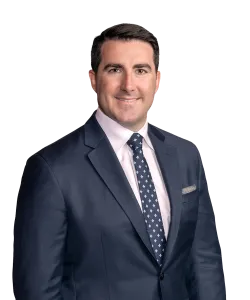Regeneron Court Permits Government to Pursue False Certification Theory
Headlines that Matter for Companies and Executives in Regulated Industries
Regeneron Court Permits Government to Pursue False Certification Theory
On August 4, the district court in the closely watched Regeneron case granted the government’s request to file a second partial summary judgment motion, and to reopen discovery on a limited basis, allowing the government to pursue an alternate, false certification theory of liability after the First Circuit ruled in February that a “but-for” standard is required for proving a violation of the Anti-Kickback Statute (AKS). As we have reported previously, the government alleges that Regeneron funneled millions of dollars to the Chronic Disease Fund, a charitable foundation, to subsidize patient copays for its drug Eylea, with the intent to induce increased prescriptions and improperly bill Medicare.
Initially, the case focused on the 2010 amendment to the AKS, which deems any Medicare claim “resulting from” an AKS violation as per se false under the False Claims Act (FCA). The district court, and later the First Circuit on interlocutory appeal, clarified that the government must prove the AKS violation was the “but-for” cause of the false claim under this theory. This heightened causation standard prompted the government to seek leave to pursue an alternative “false certification” theory, which requires proof that Regeneron falsely certified compliance with the AKS, and that such certification was material to the government’s payment decision.
In granting the government’s motion, the district court found that the government’s complaint contained sufficient factual allegations to support a false certification theory, even if it was not explicitly pleaded. The court also determined that the government’s shift in strategy was justified by the intervening change in the law regarding causation, and that reopening discovery would not unduly prejudice Regeneron. The government was ordered to produce additional discovery within 28 days, and the parties were given a new schedule for summary judgment briefing.
The case is United States v. Regeneron Pharmaceuticals Inc., case number 1:20-cv-11217, in the US District Court for the District of Massachusetts.
Defense Contractor and Private Equity Owner Settle FCA Allegations Over Cybersecurity Non-Compliance
Aero Turbine, Inc. (ATI), an aerospace maintenance and repair provider, and Gallant Capital Partners, LLC, its former controlling owner, recently resolved FCA allegations that it failed to comply with cybersecurity requirements in a contract with the US Department of the Air Force for $1.75 million. The case centered on ATI’s performance under the Management of Items Subject to Repair Contract, which required strict compliance with US Department of Defense cybersecurity standards, specifically those outlined in the Defense Federal Acquisition Regulation Supplement clause 252.204-7012 and the National Institute of Standards and Technology Special Publication 800-171.
ATI self-disclosed its non-compliance with cybersecurity requirements between January 1, 2018, and February 29, 2020, including failures to fully implement required controls and improper handling of controlled unclassified information, such as providing access to unauthorized foreign personnel.
The settlement agreement includes provisions for the identification and repayment of any unallowable costs previously charged to the government, and it explicitly reserves the government’s rights to pursue criminal, tax, and other administrative actions outside the scope of the settlement.
Read the US Department of Justice’s (DOJ) press release here.
The claims resolved by the settlement are allegations only, and there has been no determination of liability.
Owner of New York Adult Care Facility Pleads Guilty to Health Care Fraud Conspiracy
Zakia Kahn of Brooklyn, New York, pleaded guilty to conspiracy to commit health care fraud and conspiracy to defraud the United States in connection with an extensive scheme to defraud Medicaid. Kahn was the owner of two adult care facilities in Brooklyn, New York, namely Happy Family Social Adult Day Care Center, Inc. and Family Social Adult Day Care Center Services, Inc. From approximately October 2017 through approximately June 2024, Kahn and her employee co-conspirators allegedly paid cash to Medicaid recipients to induce them to enroll in services with her care facilities. Kahn and her co-conspirators then allegedly submitted claims to Medicare for services that were either medically unnecessary or were never provided. Kahn then, according to the government, sought to disguise the receipt and payment of unlawful bribes through various financial transactions, including through Tanwee Services, another company controlled by Kahn. In total, Kahn was accused of defrauding Medicaid of $68 million.
As a condition of her guilty plea, Kahn agreed to forfeit $5 million, including two properties, cash, and gold jewelry. Kahn is scheduled to be sentenced on January 28, 2026, and faces up to 15 years in prison.
Read the DOJ’s press release here.
Jury Convicts Crypto Founder of Conspiracy; Mistrial on Money Laundering and Sanctions Charges
Following a three-week jury trial and multiple day of jury deliberations, Roman Storm, co-founder of Tornado Cash, was convicted of conspiracy to operate an unlicensed money transmitting business. After four days of deliberations, the jury hung on money laundering and conspiracy to violate the International Emergency Economic Powers Act charges, resulting in a mistrial on those charges.
According to prosecutors, Tornado Cash facilitated more than $1 billion in money laundering transactions between 2019 and 2022. The government alleged that Storm and his co-founders profited more than $12 million from the business. Storm’s defense was premised on the theory that Storm and his co-founders lacked the requisite control over the crypto deposited into Tornado Cash.
Deliberations occurred over multiple days, with jurors sending several notes with questions regarding evidence and testimony, including with respect to the applicability of sanctions to crypto wallets.
Following the guilty verdict, prosecutors sought to revoke Storm’s $2 million bail, arguing that he is a flight risk. Judge Katherine Polk Failla denied the request. Sentencing will take place at a later date. Storm faces a maximum of five years in prison.
Read the DOJ’s press release here.
Contacts
- Related Industries
- Related Practices






